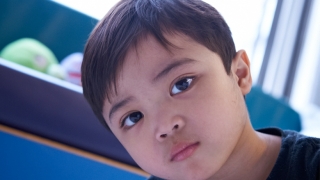Eczema: Beating the Itch
Published on
Health Tip of the WeekPublished on
Health Tip of the WeekWinter weather is the cause of all sorts of health issues. For many kids, exposure to the dry winter air can lead to flare-ups of eczema.
 Also known as atopic dermatitis, eczema is one of the most common chronic skin conditions, affecting anywhere from 10 to 20 percent of all infants. It’s usually first seen in babies and young children — most patients develop their symptoms before age 1, and 85 percent have symptoms before the age of 5. While many children outgrow the condition, about 60 percent will continue to have symptoms throughout adolescence and into adulthood.
Also known as atopic dermatitis, eczema is one of the most common chronic skin conditions, affecting anywhere from 10 to 20 percent of all infants. It’s usually first seen in babies and young children — most patients develop their symptoms before age 1, and 85 percent have symptoms before the age of 5. While many children outgrow the condition, about 60 percent will continue to have symptoms throughout adolescence and into adulthood.
Eczema is not contagious, but it often runs in families. The symptoms of eczema are:
If you have an infant or young child, you’re most likely to see eczema on the face, elbows and knees. In older children it may also appear on the hands and feet, the arms and the backs of the knees.
No matter what part of your child’s body is affected, eczema is likely to be uncomfortable and itchy, and will cause your child to want to scratch. Any excessive rubbing and scratching, though, can tear the skin and result in an infection.
Since eczema resembles other skin conditions, your child should be diagnosed by a pediatrician if you suspect she has eczema. While there is no cure for eczema, there are certain things you can do to keep your child comfortable during flare-ups. Be sure to discuss the following suggestions with your pediatrician to best manage your child’s condition.
Your child's pediatrician may also prescribe medications to help calm the eczema. The following medications are most commonly used:
Contributed by: Patrick S. Pasquariello, MD
Categories: Health Tip of the Week, Winter